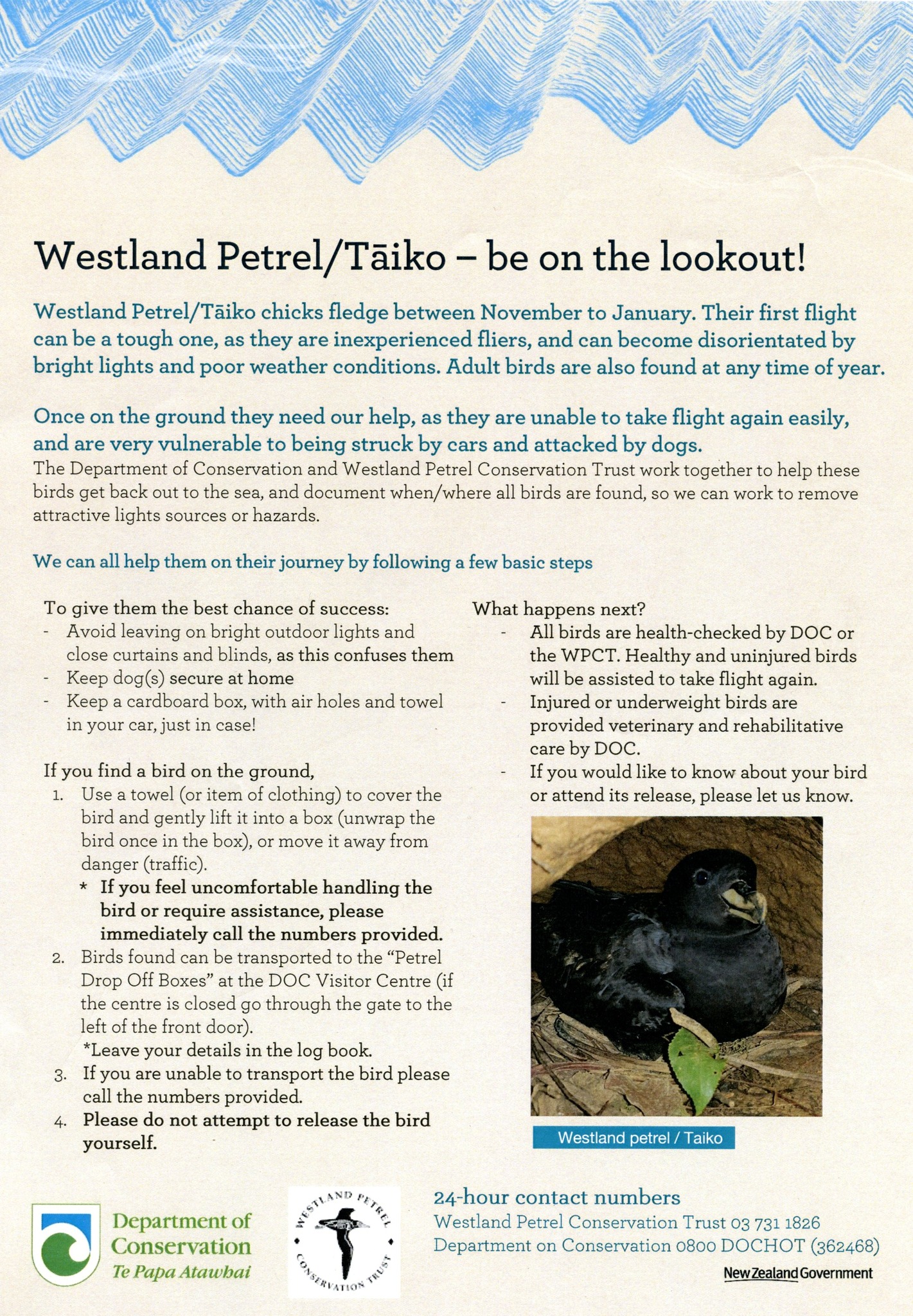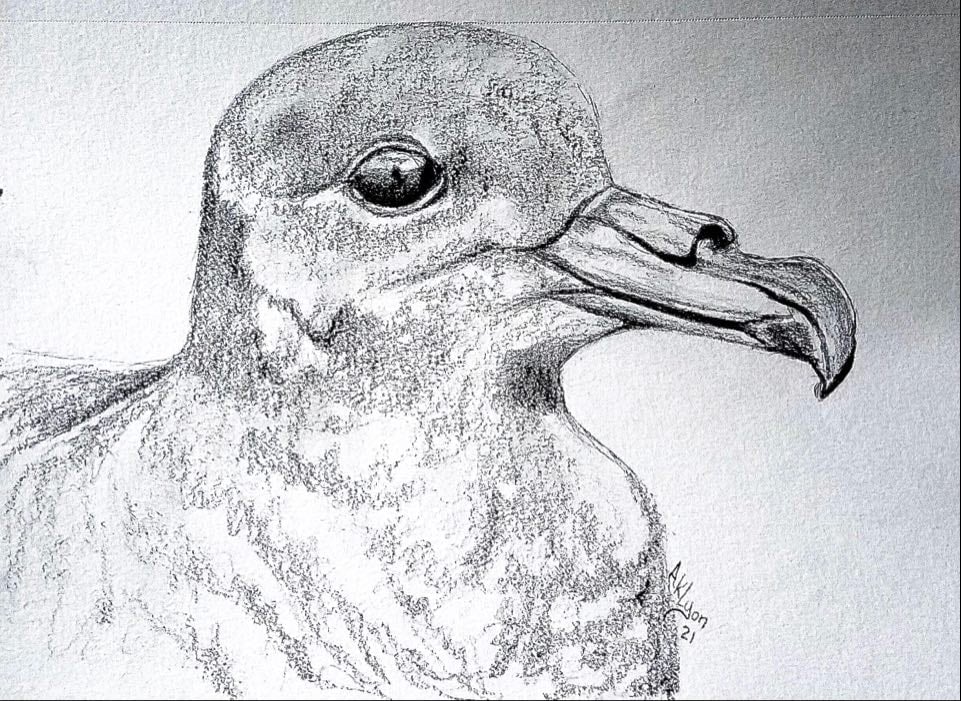
A conservation concern for the ACAP-listed Westland Petrel is mortality of fledglings downed by bright street and other lights as they head to sea at night and then can get hit and killed by passing vehicles. ACAP Latest News has reported on this concern several times over recent years, most recently in relation to plans to undertake mining near to the petrel’s sole breeding colony at Punakaiki on New Zealand’s South Island (click here).
The Westland Petrel Conservation Trust, which works to promote, support and actively engage in the conservation of the globally Endangered and nationally Naturally Uncommon petrel, reports this week on its Facebook page that as a consequence of the petrel fallout a patrol will run regular searches for downed petrels during the fledging stage starting on 13 November. The trust is calling for volunteers to join searches along the highway in the early evenings.

A Westland Petrel by Anne Lyon of Artists Unite for Biologists and Nature, after a photograph by Frank Valckenborgh
In support of the trust’s efforts, the New Zealand Department of Conservation has produced a leaflet setting out what to do when finding a downed bird. Its edited text follows:
“Westland Petrel/Tāiko chicks fledge between November to January from their colony just south of Punakaiki. Their first flight can be a tough one, as they are inexperienced fliers, and can become disorientated by bright lights and poor weather conditions. Adult birds are also found at any time of year. Once on the ground they need our help, as they are unable to take flight again easily, and are very vulnerable to being struck by cars and attacked by dogs.
The main flight path area for these birds at the northern end of the Barrytown flats has no streetlights, which is great for the birds ordinarily but means that they may be distracted by vehicle lights and come down on the highway. These large all black birds are then almost invisible against the black tarmac until the next car comes speeding along.
If you’re driving in the area, please be mindful of these birds particularly November to January and travel a little slower. The same applies in all coastal areas where penguins could be crossing too – better for wildlife, safer for you, and less fuel used – win – win – win.
The Department of Conservation and Westland Petrel Conservation Trust work together to help these birds get back out to the sea, and document when/where all birds are found, so we can work to remove attractive lights sources or hazards.
Particularly around Punakaiki and Barrytown but in fact anywhere between Hokitika and Westport, there are a few things you can do to help reduce the risk to this special bird, which only breeds in one place in the world.
To give them the best chance of success:
Avoid leaving bright outdoor lights on after dark and close curtains and blinds, as this confuses them
Keep dog(s) secure at home
Keep a cardboard box, with air holes and towel in your car, just in case
If you find a bird on the ground:
Use a towel (or item of clothing) to cover the bird and gently lift it into a box (unwrap the bird once in the box), or move it away from danger (traffic)
If you feel uncomfortable handling the bird or require assistance, please immediately call the numbers provided
Birds found can be transported to the “Petrel Drop Off Boxes” at the DOC Visitor Centre (if the centre is closed go through the gate to the left of the front door) and leave your details in the log book
If you are unable to transport the bird please call the numbers provided
Please do not attempt to release the bird yourself.
What happens next?
All birds are health-checked by DOC or the WPCT. Healthy and uninjured birds will be assisted to take flight again
Injured or underweight birds are provided veterinary and rehabilitative care by DOC
If you would like to know about your bird or attend its release, please let us know"
The flyer is here if you would like to print and keep handy or share.
John Cooper, Emeritus Information Officer, Agreement on the Conservation of Albatrosses and Petrels, 21 November 2023

 English
English  Français
Français  Español
Español